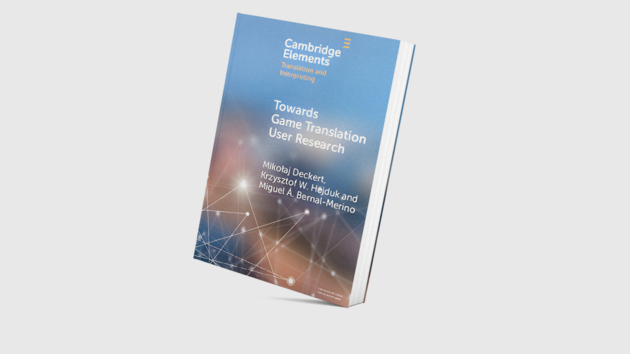Video games are extremely popular all over the world. To meet the expectations of a diverse and international audience, the gaming industry must follow procedures that enable easier access to games for all, for example through translation.
For this reason, the authors of the latest book take the initiative to highlight the nascent state of audiovisual translation research centring on users of video games. This is important to better understand how translations impact the players’ experiences and how the translation process can be adapted to better meet the needs of international audiences.
"Towards Game Translation User Research" is a book co-authored by two scientists from the Faculty of Philology of the University of Lodz: Prof. Mikołaj Deckert and Krzysztof Hejduk. The publication refers to the work carried out as part of the "Excellence Initiative – Research University" (IDUB) and NCN Preludium Bis competitions at the University of Lodz. The book was published by Cambridge University Press with the scientific participation of one of the pioneers of research on video game translation (Miguel A. Bernal-Merino).
It is interdisciplinary in nature – it combines trends known in linguistics, literary studies, media studies, film studies, as well as computer science, sociology, psychology... So, we think it will be of interest not only to English experts, ludologists and translation experts
– says one of the authors, Krzysztof Hejduk.
The publication outlines a systematic research programme, embedded in existing game development and business structures. The model proposed in the book tries to comprehensively capture aspects of game user’s experience (UX/PX), aspects of game translation/accessibility (AVT/MA) and important aspects of the identity of game users themselves. Researchers discuss real and feasible examples of reception research, thoroughly explaining methods, tools and data sources.
The book can be downloaded from the website of Cambridge University Press.

